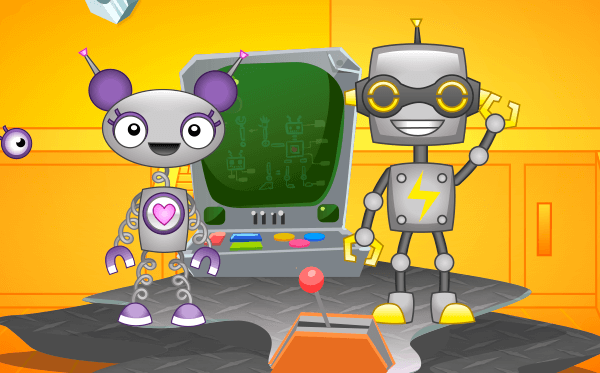Answer Key
Module 1: Battery Sequencing - Puzzle 1
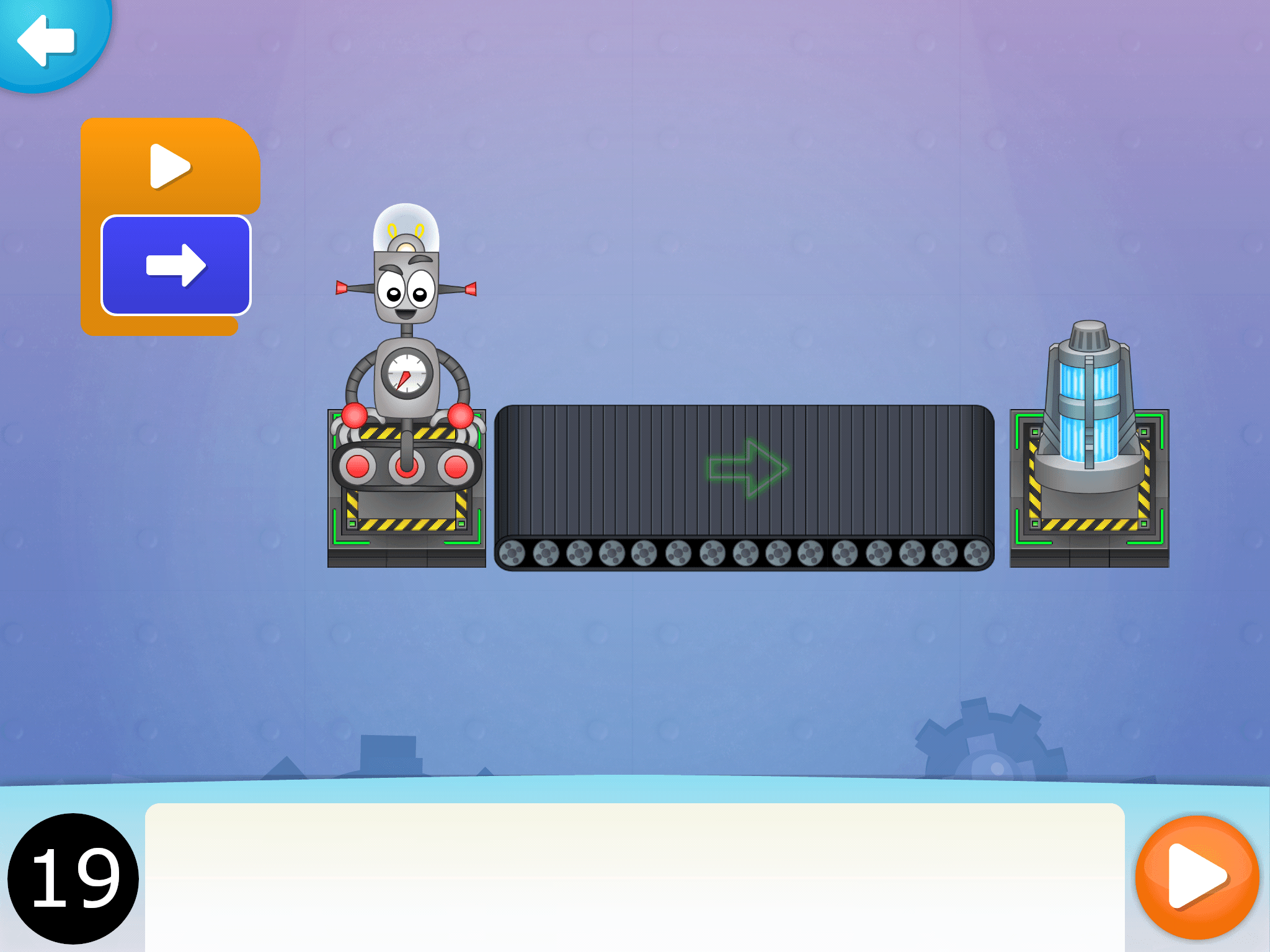
Module 2: Battery Sequencing - Puzzle 2
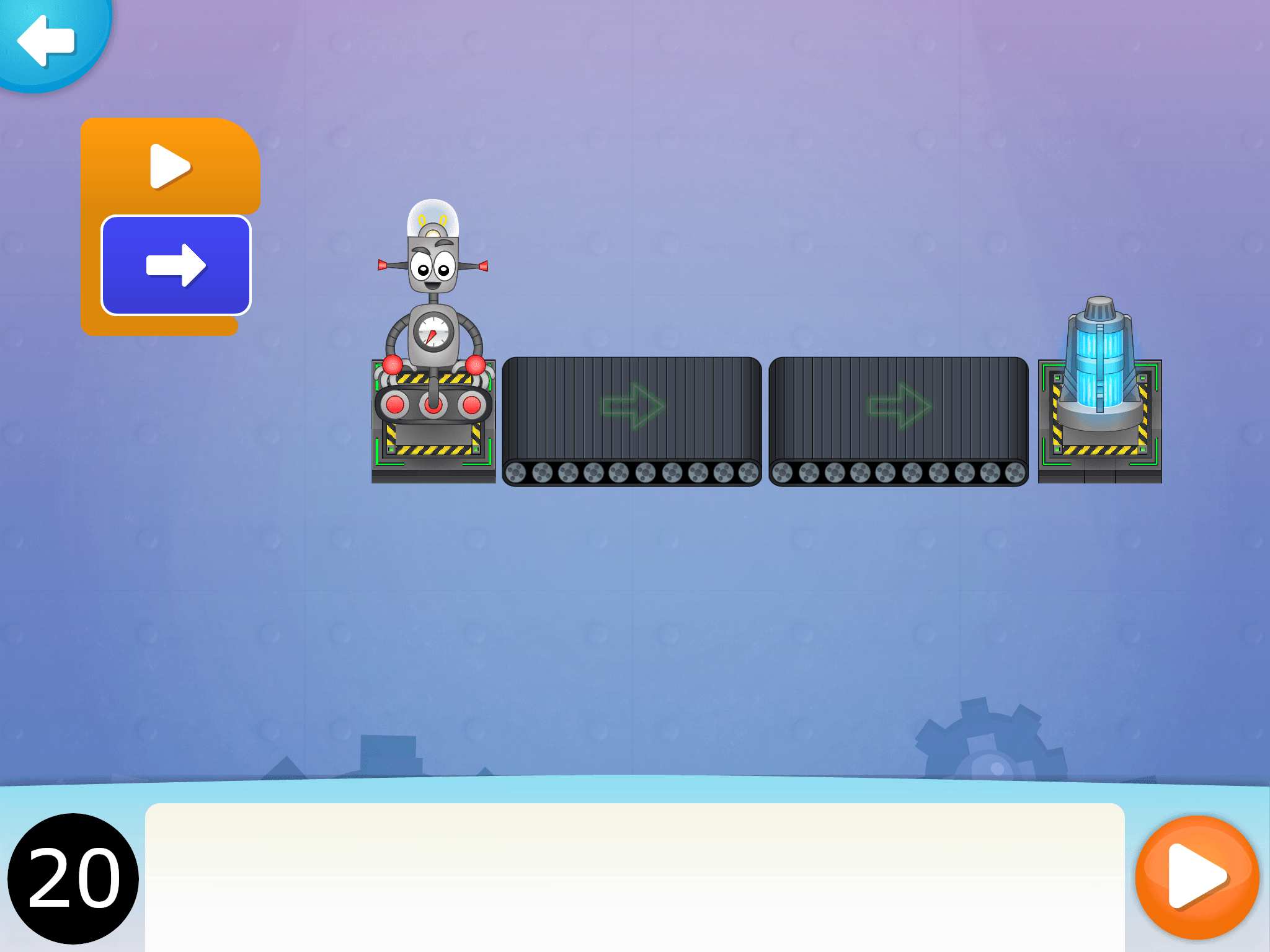
Module 3: Battery Sequencing - Puzzle 3
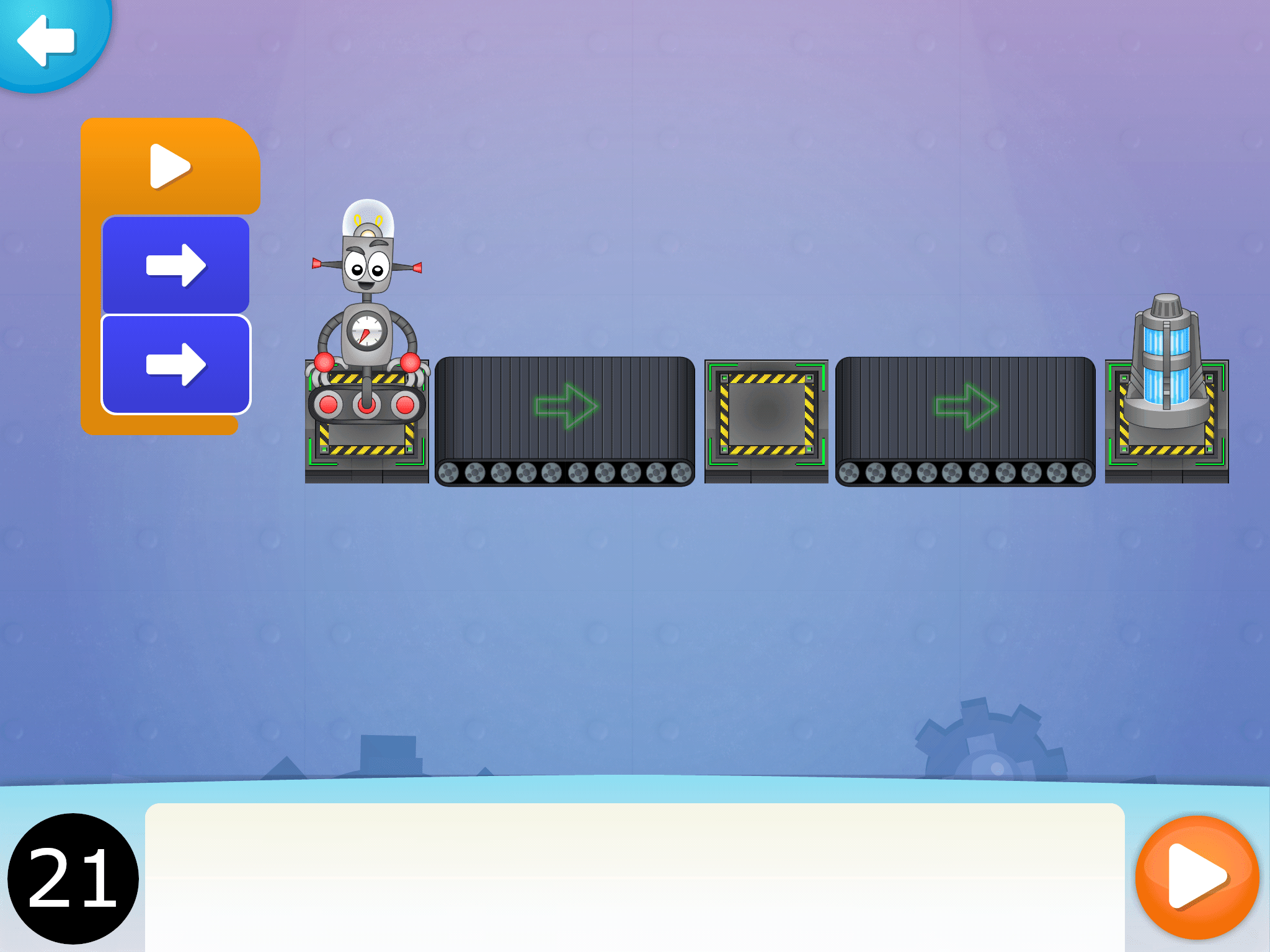
Module 4: Battery Sequencing - Puzzle 4

Module 5: Battery Sequencing - Puzzle 5

Module 6: Battery Sequencing - Puzzle 6

Module 7: Battery Sequencing - Puzzle 7

Module 8: Battery Sequencing - Puzzle 8

Module 9: Battery Sequencing - Puzzle 9

Module 10: Battery Sequencing - Puzzle 10
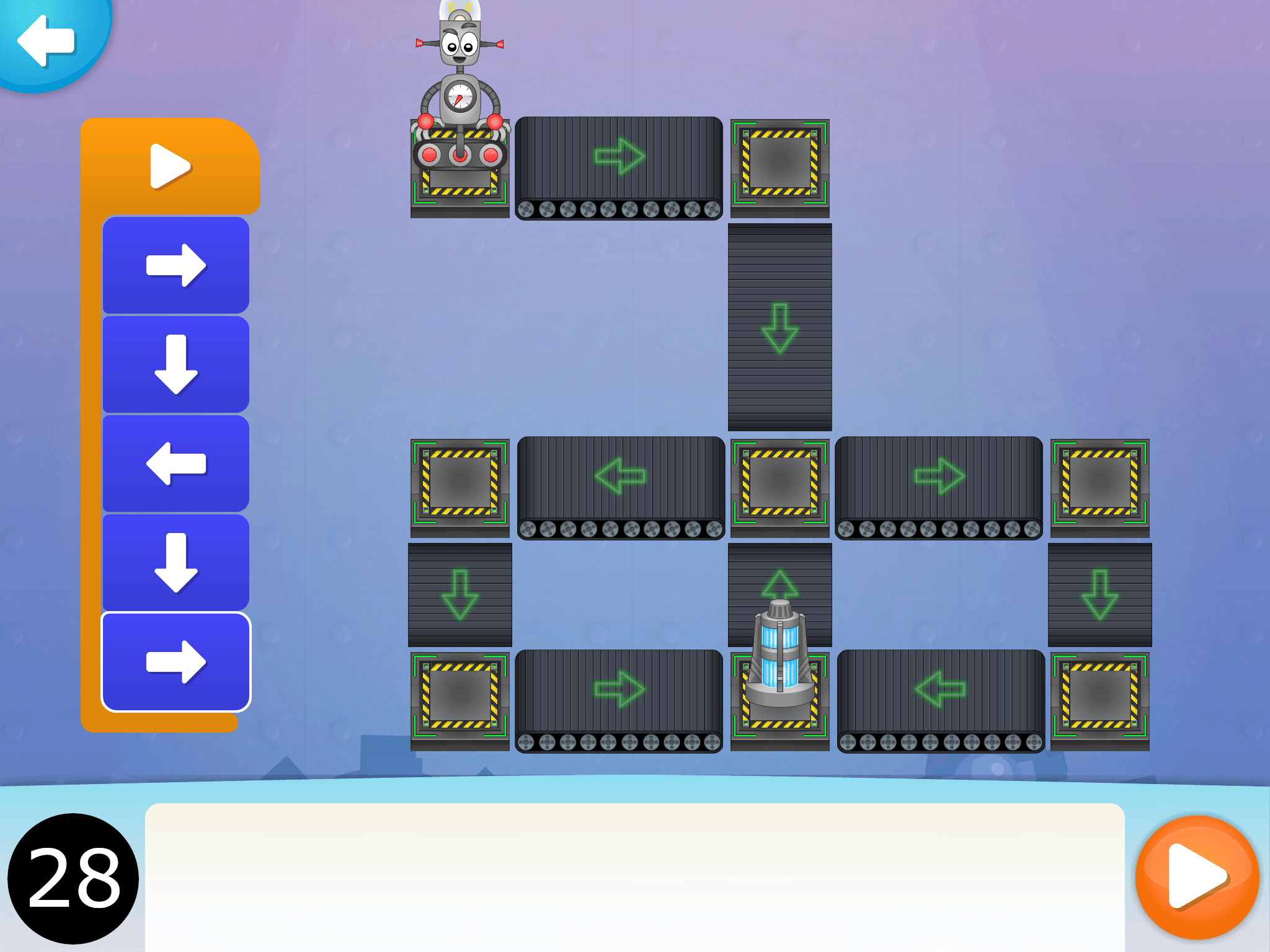
Module 11: Battery Sequencing - Puzzle 11

Module 12: Battery Sequencing - Puzzle 12

Module 13: Battery Sequencing - Puzzle 13
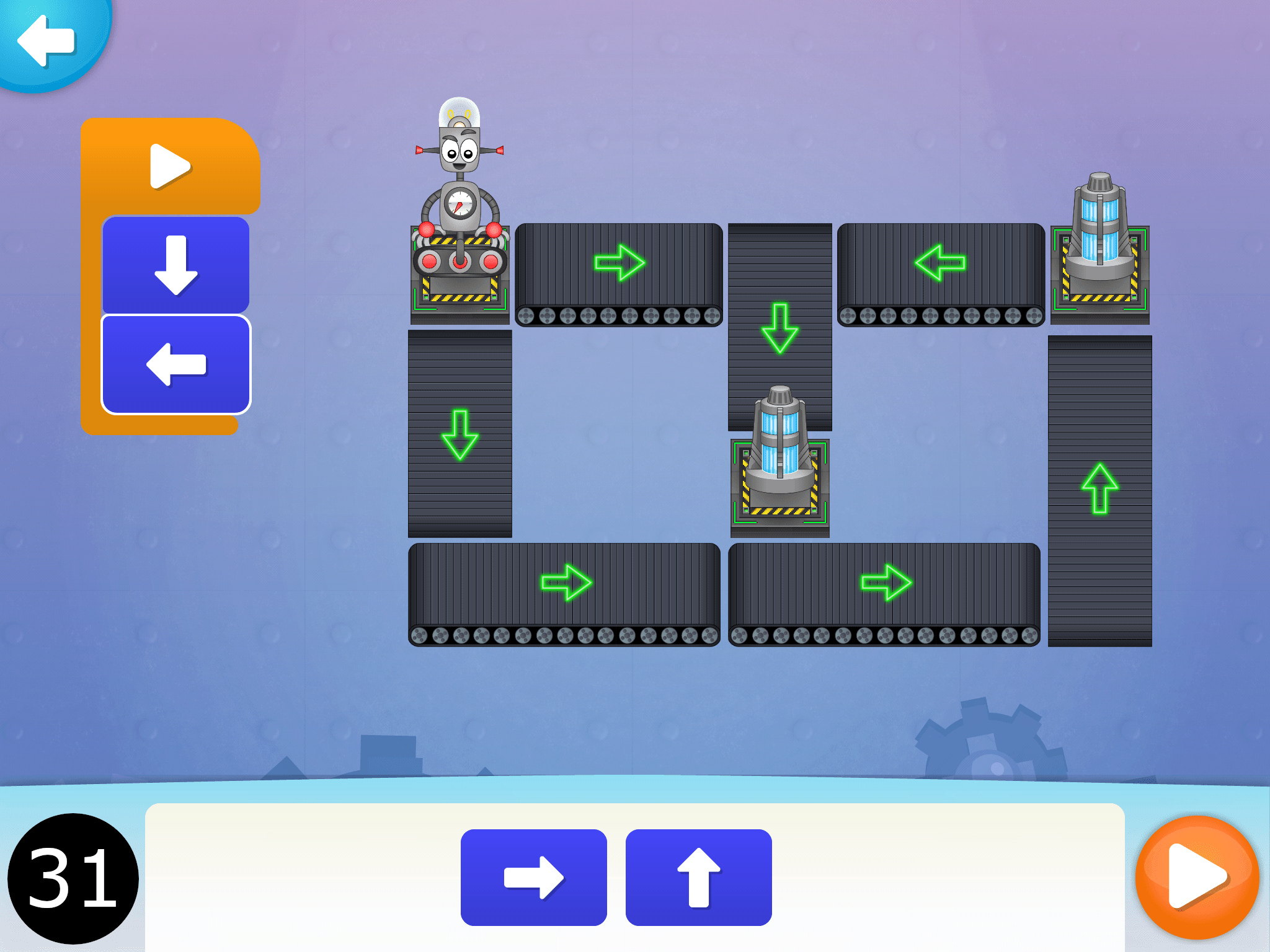
Module 14: Battery Sequencing - Puzzle 14

Module 15: Battery Sequencing - Puzzle 15

Module 16: Battery Sequencing - Puzzle 16

Module 17: Battery Sequencing - Puzzle 17
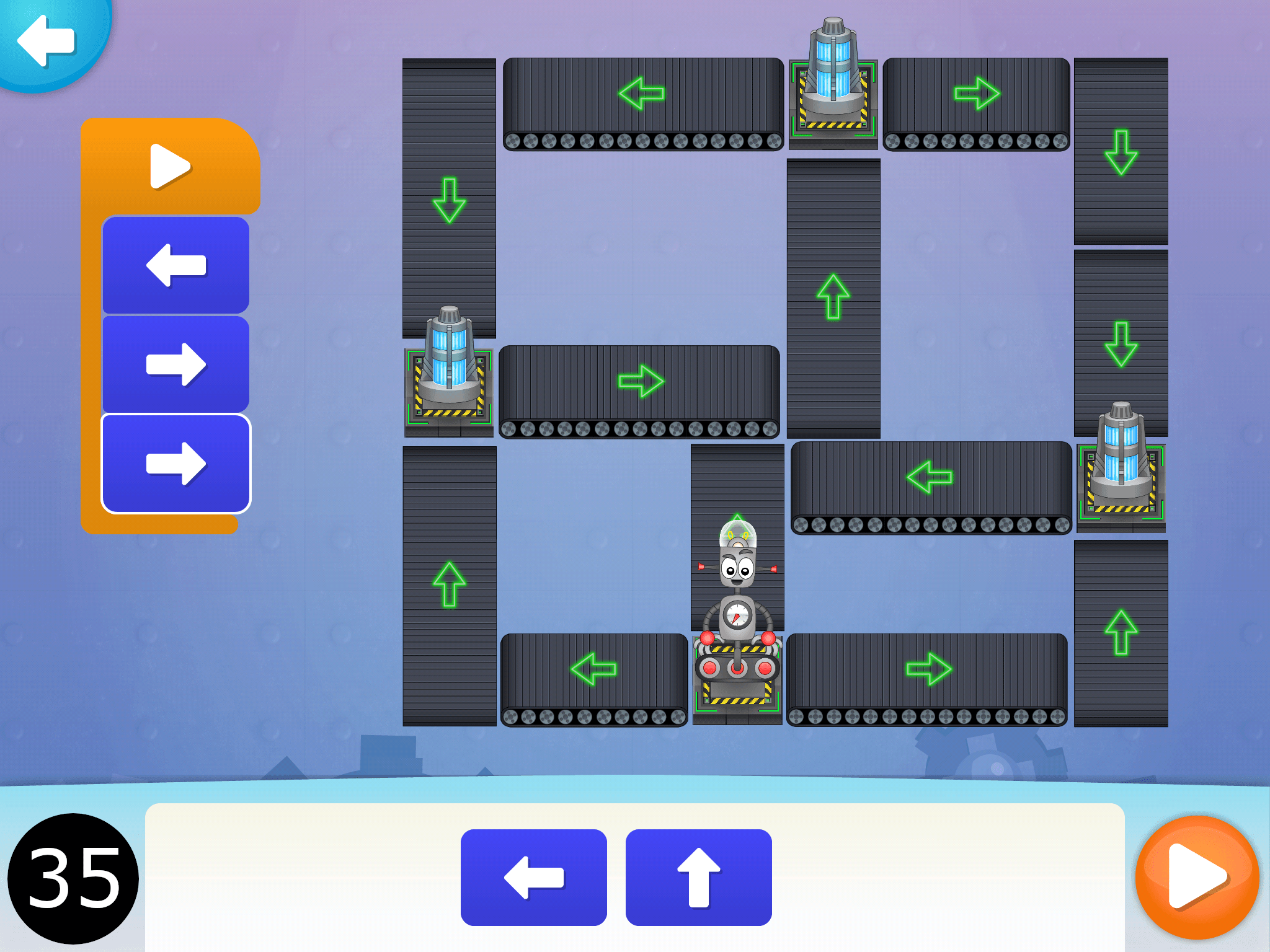
U.S. Standards
- CCSS.Math: MP.1
- CSTA: 1A-AP-09, 1A-AP-11, 1A-CS-01
- CS CA: K-2.AP.13, K-2.AP.17
- ISTE: 1c, 2b, 5c
U.K. Standards
Key stage 1
Pupils should be taught to:- understand what algorithms are, how they are implemented as programs on digital devices, and that programs execute by following precise and unambiguous instructions
- create and debug simple programs
- use logical reasoning to predict the behaviour of simple programs
- use technology safely and respectfully, keeping personal information private; identify where to go for help and support when they have concerns about content or contact on the internet or other online technologies
Lesson 4: Battery Sequencing
Course: | iPad
Description
Second in the series of pre-reader courses, Robots introduces pre-readers to parameters, events and flexible sequencing. To use Robots in your classroom, you must download the Tynker Junior app from the App Store. The Tynker Junior app offers a collection of robotics programming for beginners courses specifically designed for young children (ages 5-7) who are still learning how to read.
In Robots, students program a robot factory to design robots using the right parts. Students use code to create the right kind of robot based on a given blueprint. Using “tilt” and “tap” events, they program simple games and animations. They use block commands to navigate robots through a maze of conveyor belts and collect power cells in a series of puzzles that reinforce their sequencing skills.
Tynker Junior uses word-free picture-based block programming with fun characters to help kids develop the best coding robot animations, pursue adventures and solve puzzles and challenges. This enables young children—who have limited motor skills and are still developing hand-eye coordination—to learn to code using big blocks, pictures, voiceovers and tap-tap-tap interactions, without words or drag-and-drop or any other actions they may find too tedious or overwhelming. Tynker SmartPass enables younger students to learn robotics online. They can sign in by simply scanning a code, without the need to remember any usernames or passwords.
Robots is only available on iPads and iPhones. Students can access the course using the Tynker Junior app on their iPad devices. These courses are not available on Android or via the browser at tynker.com.
Topics
- Parameter usage
- Flexible sequencing
- Tilt and tap events
- Build a simple game
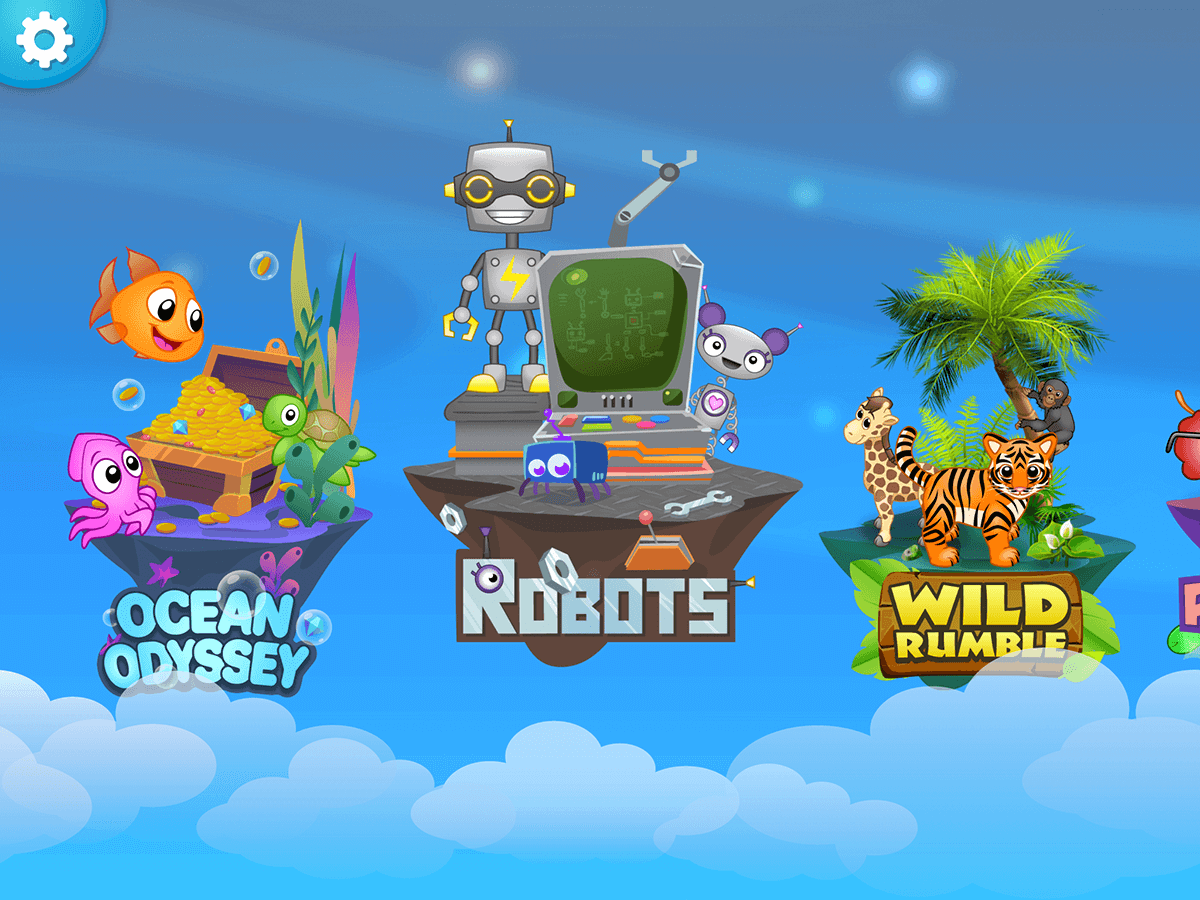
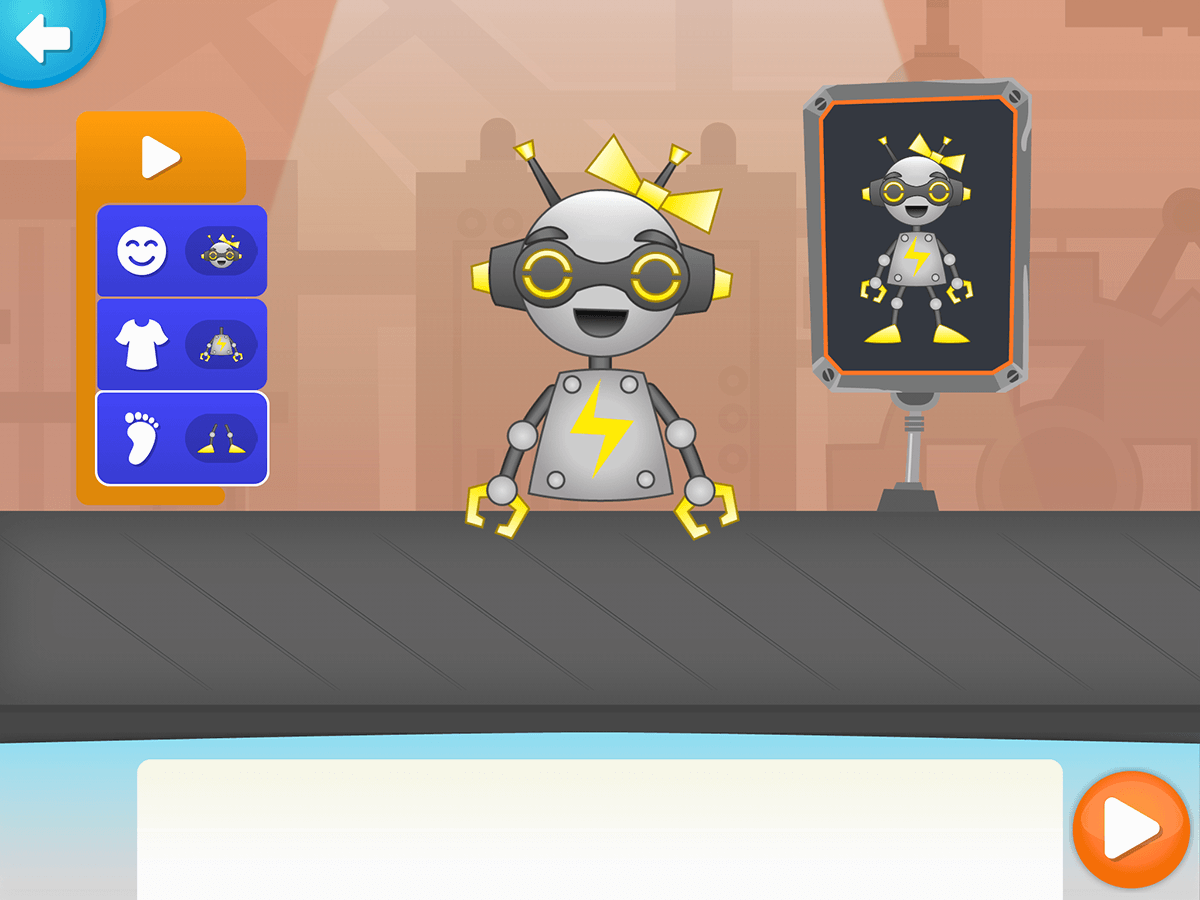
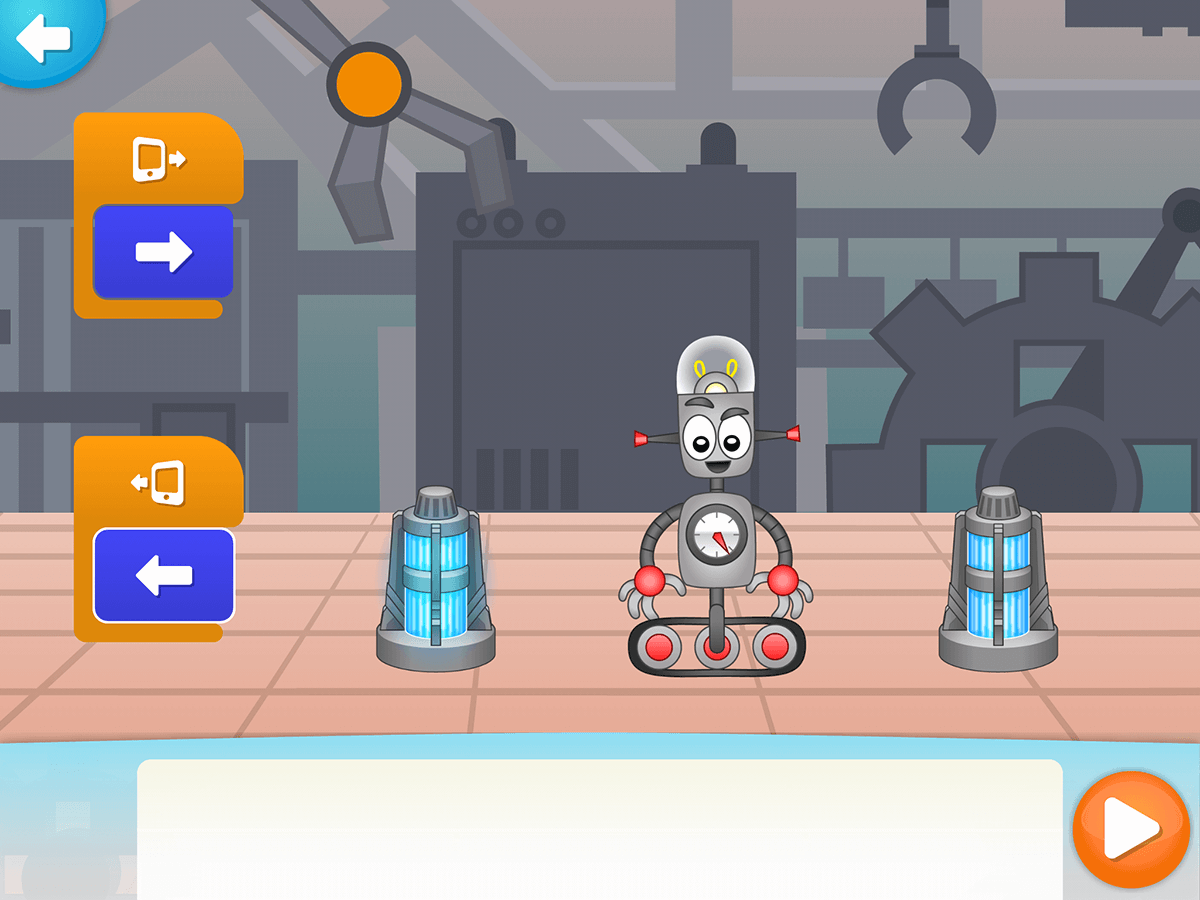
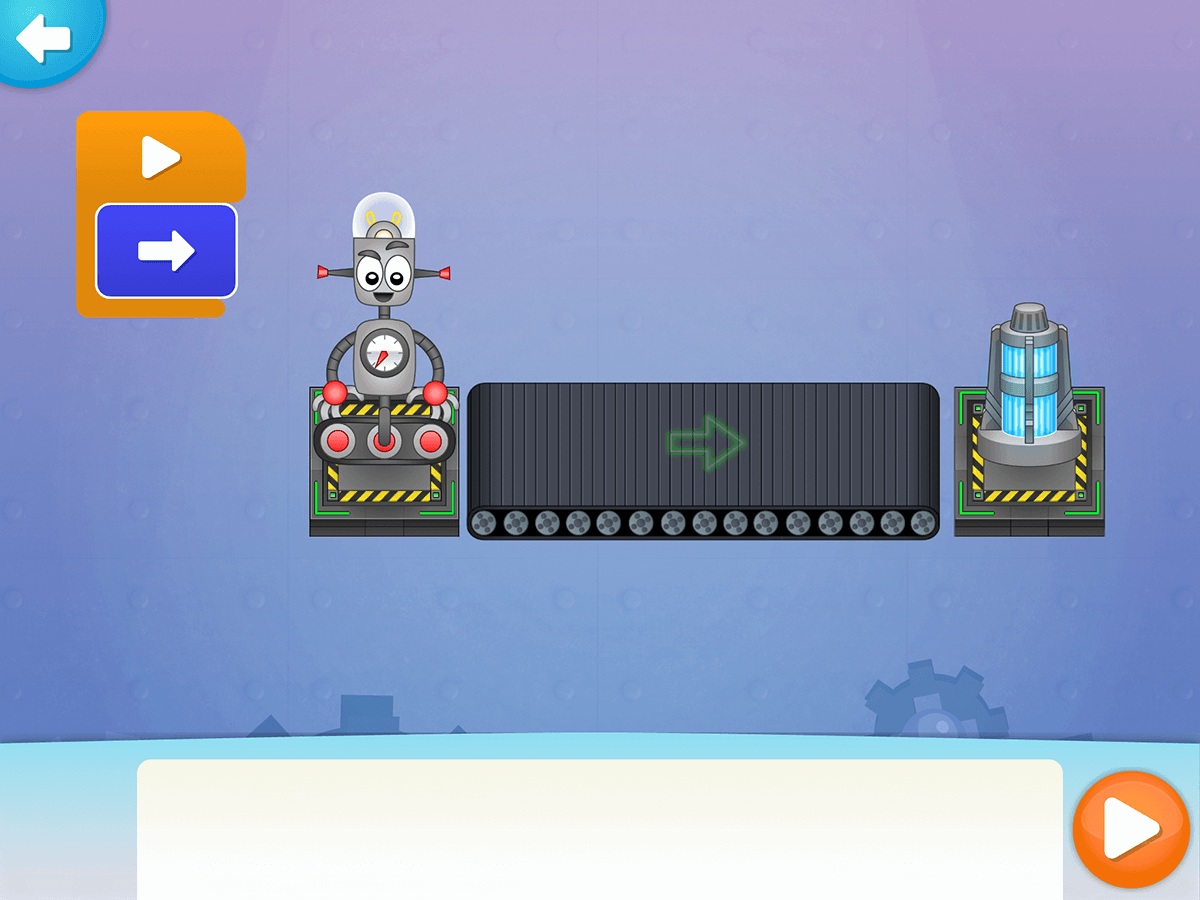
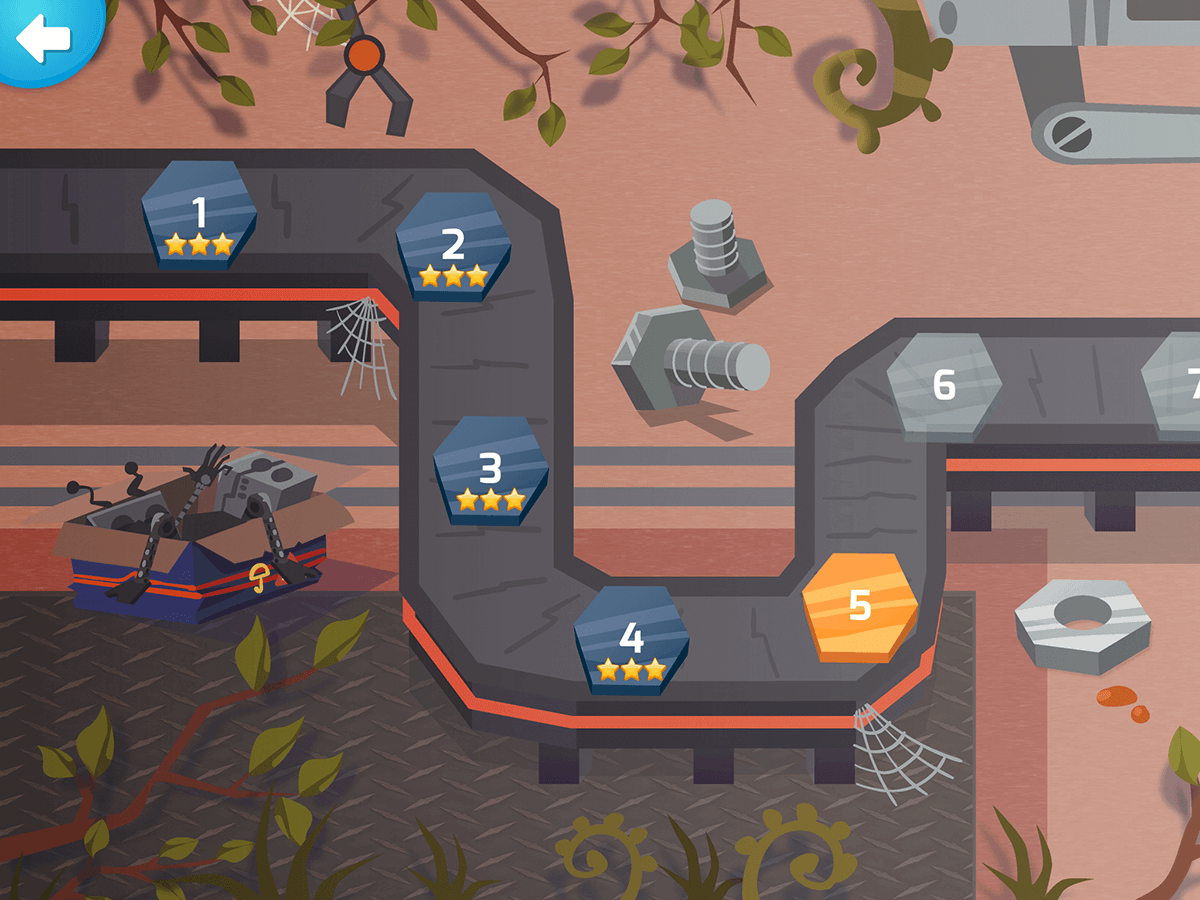
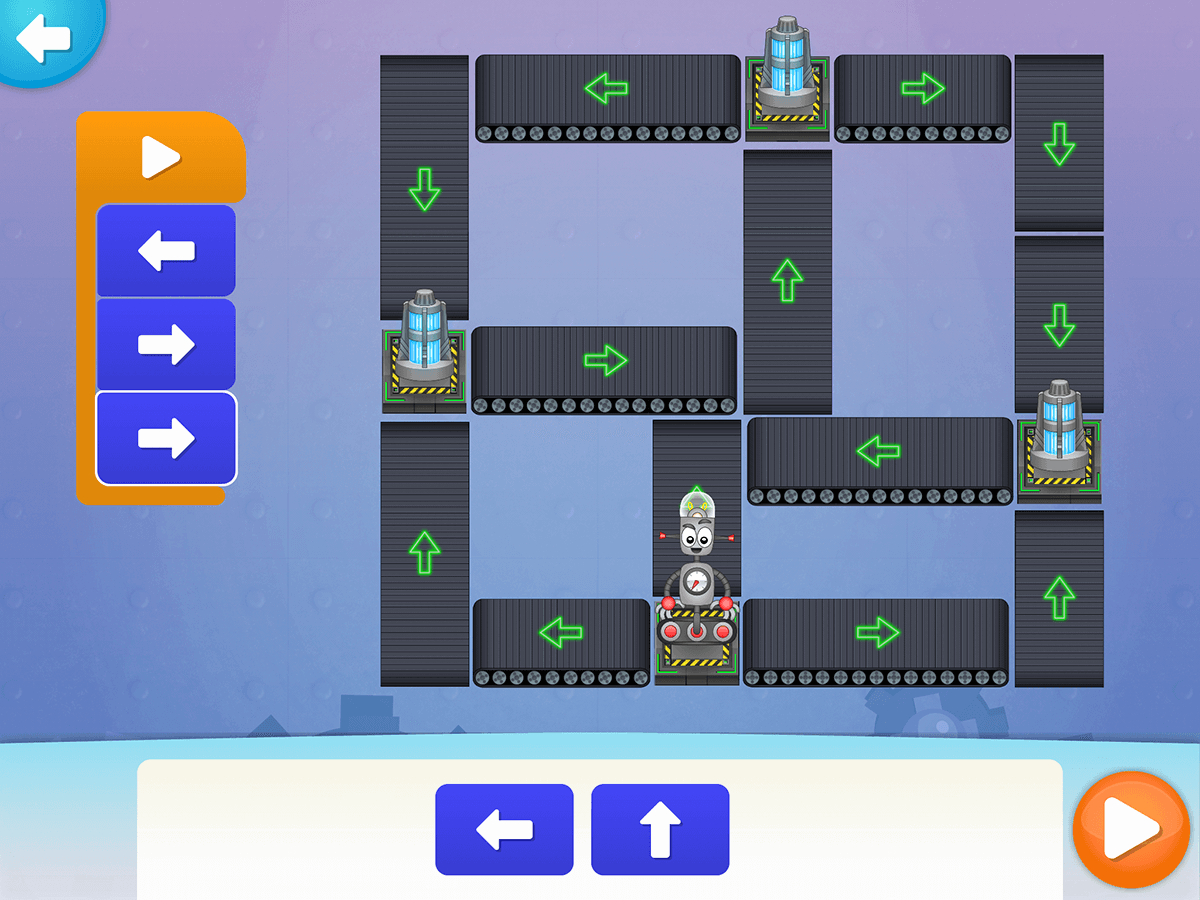
What Students Learn
- Code a robot factory to design different types of robots
- Use 'tilt' events to program a robot game
- Code robots to dance and wave using “tap” events
- Navigate robots through a maze to collect power cells
- Learn flexible sequencing as you solve the same puzzle in different ways
Technical Requirements
* Online courses require a modern desktop computer, laptop computer, Chromebook, or Netbook with Internet access and a Chrome (29+), Firefox (30+), Safari (7+), or Edge (20+) browser. No downloads required.
* Tablet courses require an iPad (iOS 10+) with Tynker or Tynker Junior app installed and Internet access
Lesson
4 : Battery Sequencing
Pre-Reader Course Collection
Time: 45+ minutes
